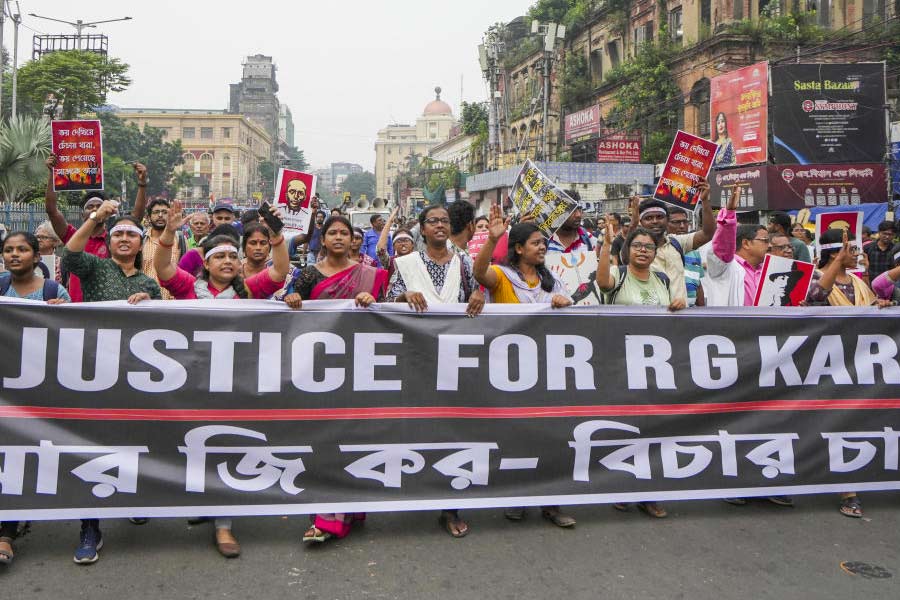“Women, reclaim the night”, read the posters in bold. The protest marches in India and around the world on August 14, in response to the rape and murder of a junior woman doctor at the R.G. Kar Medical College and Hospital, had one simple goal: women were to physically occupy the streets at night, a privilege that few of us who identify as female possess. It was designed to be a protest in which women would deliberately take up physical space. By taking up space, I mean challenging the spaces that are male-dominated — in this case, the city streets — through practices that create a shift in spaces that have traditionally operated on the basis of gendered violence and exclusion.
The entitlement to space — physical and social — is something of an aberration when it comes to the female experience. Women are socialised to take up as little space as possible — sitting upright while clutching their possessions in public transport, making space for others to pass them while walking on the streets, or speaking only when their male colleagues are done and, often, starting sentences with, ‘I am sorry but I think/feel.’ The right to take up space is something that very few women are able to lay claim on. The intersections of caste, class and religion add significantly to this question of who gets to access space. Its denial has serious ramifications, such as the devaluation of female labour, intellect and physical presence to the point of invisibilisation.
The protest marches on August 14, and the many others thereafter, had been organised to challenge these everyday realities of the female experience and to subvert the narrative that seeks to subdue the female presence. The call for the occupation of night streets was intended to recognise the erasure of the physical presence of female and marginalised bodies from public spaces. It was designed to signal a form of persistent resistance where female existence can be visibilised and recognised not just for one night but all others. Taking up space by reclaiming the night was, thus, meant to be an act of defiance.
Regressive steps
Soon after, the West Bengal government introduced a set of guidelines to safeguard the interests of women, among which an important one pertained to the minimisation or avoidance of night duty for women. This stipulation stands in stark opposition to the demands made by the Reclaim the Night protest marches and devalues the principles on which the demonstrations were organised in the first place. While the demonstrators sought to exercise the rights of women to be seen in public spaces, the new directive, by advocating the reduction of their presence from the nocturnal workforce, endorsed yet another way of marginalising female labour and intellect. The new set of guidelines also mandates that women work in pairs wherever possible, therefore restricting female movement.
These directives do nothing but encroach upon the already limited space that is available for women. By demarcating hours in which women can and cannot work and by maintaining that women should not work alone, the regulations strengthen the same regressive ideas that discourage women from claiming space.
Restricting work hours or movement will do little to ensure public safety for women unless there is a concerted effort to look into the systemic mechanisms that facilitate gendered violence and sexual crimes. The government guidelines should have addressed these issues. The fight to take up space and reclaim public spaces for women must therefore continue.











